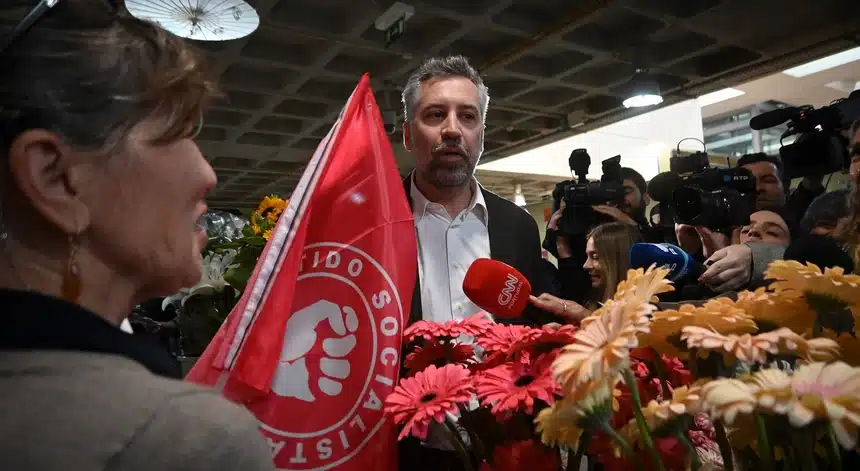Says PSD “now trying to attack work of media and journalists”
The calls when the government fell for a ‘clean campaign, based on issues facing the country’ appear to have gone unheard as even before the official electoral ‘race’ begins, the vitriol is pumping. PS secretary-general Pedro Nuno Santos has today accused his party’s arch rivals, the PSD, of disrespecting press freedom – arguing that prime minister Luís Montenegro should not be a candidate for the country’s next prime minister.
Yesterday, Mr Nuno Santos accused Mr Montenegro of “using public money to campaign” (due to his staging of an open-house event over the May Day Bank Holiday as it had had to be cancelled on April 25, as a mark of respect for the Pope’s death). It is almost looking like ‘accusation overload’ when the electoral campaign is only meant to start (officially) on Sunday. Can Mr Nuno Santos keep these personal attacks going – and if he does, will they reflect well on his party, or start to put voters off?
For now, the PS secretary-general is clearly bristling over the PSD’s ‘sense of outrage’ that details of Mr Montenegro’s updated declaration of interests were leaked to the press earlier this week.
He said during what has been described as a ‘pre-campaign event at Torres Vedras Municipal Market’: “This is one more reason we shouldn’t run the risk of having a party and people who have no respect for press freedom at the head of the country’s destiny. It’s worrying, it’s serious that PSD leaders are now trying to attack the work of the media and journalists.”
“The question isn’t how Luís Montenegro is prime minister, it is how Luís Montenegro is still a candidate for prime minister of our country,” Mr Nuno Santos went on.
As well as “not being the first time” that PSD leaders have made statements “that are not favourable to press freedom”, Luís Montenegro “does everything in his power, including intimidating journalists, so that they don’t reveal what must be revealed by law, what by law should have been declared a year ago”, he added.
For Pedro Nuno Santos, not only did “Luís Montenegro not want to reveal all the names of his clients and delayed as much as possible what was a declaratory obligation to try to ensure that the names of his clients were not known until the date of the elections”, but he also “wanted to make it as difficult as possible for his clients to come forward with their names”.
Expresso reported on Wednesday that the prime minister submitted a new declaration to the Transparency Authority, mentioning more companies that Spinumviva worked with, and did so on the eve of the TV debate with Pedro Nuno Santos – a debate in which the two men’s antipathy towards each other appeared to go far further than simple ideological differences.
Correio da Manhã and CNN Portugal have since reported that two of the companies mentioned in the updated declaration have won contracts worth millions of euros during the Luís Montenegro-led government. Mr Montenegro, meantime, has reiterated that he “had nothing to do” with the adjudication processes that led to the contracts, and has had nothing to do with any of the clients of his family’s firm, Spinumviva, since becoming the head of Portugal’s government. But ‘mud sticks’ – and certainly PS Socialists appear to have every intention to keep this issue going through the electoral campaign.
After PSD inquiries were launched into trying to find out who it was that ‘leaked’ the story of the declaration of interests to Expresso, the PS, through its spokesman, Marcos Perestrello, acknowledged responsibility – essentially showing the lengths the party seems prepared to go to to wring every last opportunity from the prime minister’s connections with Spinumviva.
All this could be seen as ‘very relevant’ if the general public showed a sense of outrage over the PM’s family firm, but according to recent polls, people are really not that bothered: they are much more concerned by the real problems in Portugal: the difficulties in securing affordable housing/ prompt medical attention/ good salaries/ a good education for children/ nursery school places, etc. Cronyism/ corruption and other ‘traditional ailments of Portuguese society’ are not the primary issues for the average voter that simply wants an easier, less fraught way of life, with more opportunities. ND


























